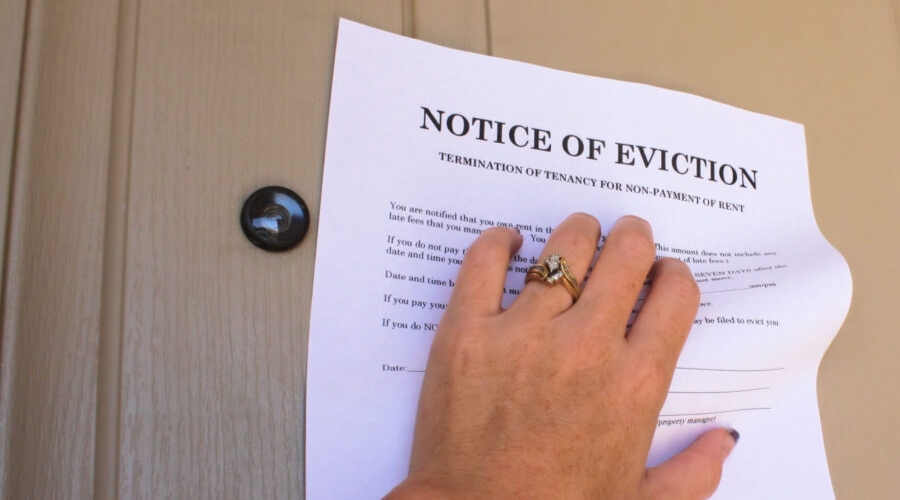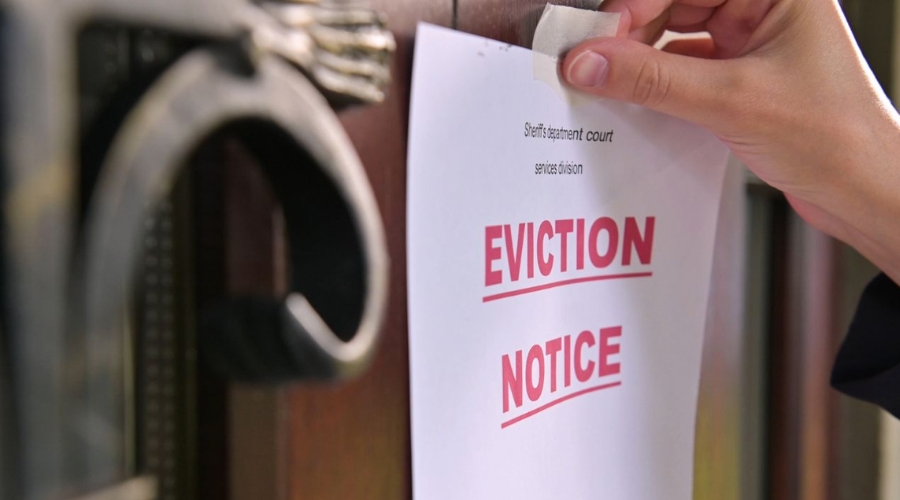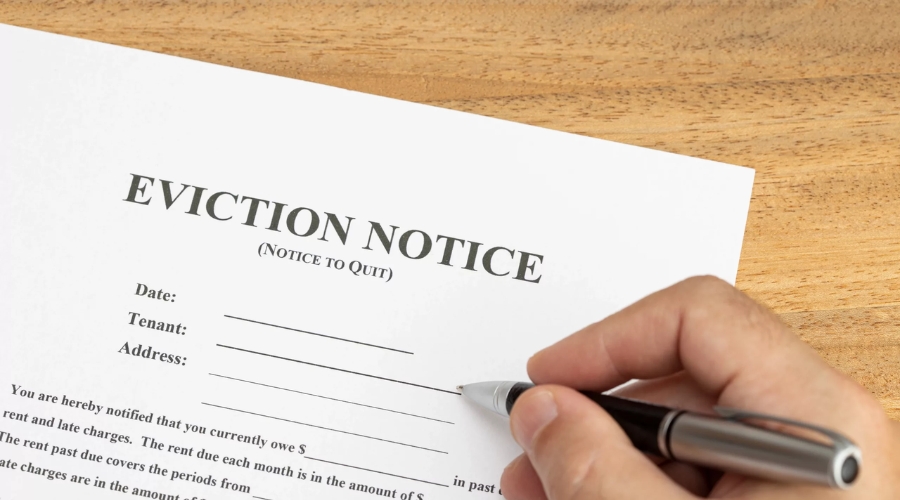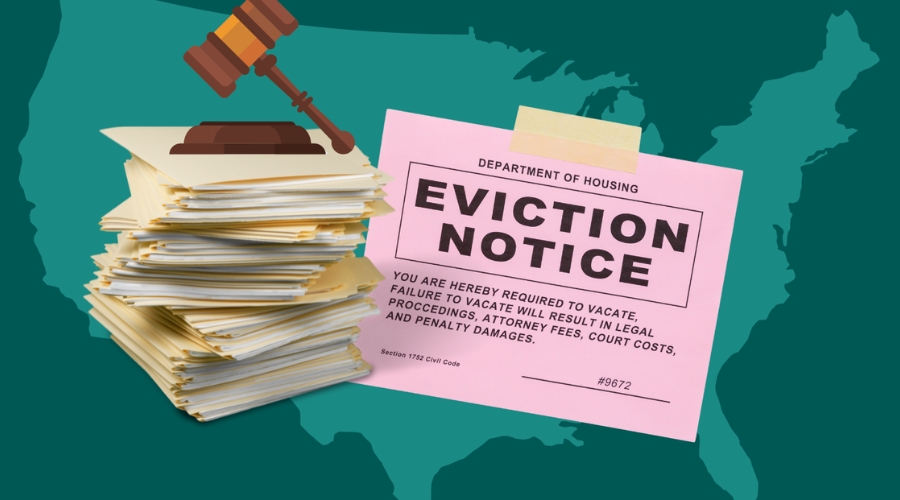Facing the eviction process in South Carolina can feel overwhelming—whether you're a landlord navigating legal steps or a tenant unsure of your rights. With specific timelines, notice requirements, and court procedures to follow, understanding how eviction works in SC is crucial. In Lease Runner’s guide, we’ll break down each stage of the process, answer common questions, and help you stay informed every step of the way.
Notable Local Eviction Ordinances in South Carolina (2025 Updates)
While South Carolina’s statewide eviction laws remain consistent, several cities have introduced or proposed local measures that could reshape how the eviction process in South Carolina plays out on a community level. Let’s take a closer look at the key updates in Columbia, Charleston, and Greenville.
1. Columbia: Proposed Rent Stabilization and Eviction Rules
In 2025, Columbia city officials proposed new rental regulations to address housing instability. One key recommendation is requiring landlords to provide up to 60 days’ notice before ending a lease or raising rent, especially in month-to-month tenancies.
These proposed changes are consistent with broader statewide efforts, including Bill H 3339, which seeks to extend the grace period for nonpayment from 5 to 10 days if the rental agreement clearly states it.
Though distinct from the eviction process, Colombia’s initiatives reflect a growing push for tenant protections through earlier notice and more structured lease practices. These updates are part of broader trends in rent laws being reviewed across the state.
2. Charleston: Proposed Expansion of Eviction Notice Periods
In Charleston, local leaders are reviewing a plan to extend the minimum notice periods required before eviction can proceed. South Carolina law currently allows landlords to issue a 5-Day Notice to Pay Rent or a 14-Day Notice to Cure for lease violations.
However, Charleston's proposed changes would give tenants additional time to respond, especially in cases involving nonpayment of rent or lease non-renewals. These adjustments would provide more breathing room for renters while keeping landlords within a clear legal framework that aligns with existing laws in the US surrounding tenant rights.
3. Greenville: Tenant Legal Aid Pilot Program
Greenville County, facing one of South Carolina’s highest eviction filing rates—approximately 20% of renter households over 12 months—has moved to launch a tenant legal aid pilot or housing court program. This initiative addresses the elevated eviction rate by providing free legal representation, mediation services, and landlord-tenant conflict resolution.
Modeled after programs that cut eviction rates by around 31% in nearby counties, this plan offers eligible residents early access to tenant rights counseling and court support. It directly targets access to counsel, aiming to reshape the eviction process in South Carolina through proactive intervention and support services.

Legal Reasons for Evicting a Tenant in South Carolina
In South Carolina, landlords can lawfully begin the eviction process in South Carolina if tenants breach specific terms of their lease or violate rental laws. Every eviction must be backed by a valid legal reason, and property owners must follow the required procedures to avoid delays or dismissal in court.
1. Overdue Rent Payments
One of the most frequent causes for eviction is unpaid rent. When a tenant does not pay rent by the due date, the landlord can serve a 5-Day Notice to Pay. This legal notice gives the tenant five days to pay the full balance. If they do so within this grace period, the eviction cannot move forward.
In cases where the lease explicitly waives the need for a written notice, the landlord may proceed with filing immediately after rent becomes overdue. Still, any mention of a grace period in the lease agreement will override default timelines. This step in the eviction process underscores the importance of clearly written lease terms and conducting a thorough eviction check beforehand to reduce potential risks.
2. Breach of Lease Agreement
Tenants who fail to comply with specific clauses in their lease—such as causing damage, harboring unauthorized pets, or exceeding occupancy limits—can be served a 14-Day Notice to Comply. This gives the tenant 14 days to correct the issue.
If the violation involves health or safety risks, the tenant must start resolving the issue during the notice period. Reasonable time may be granted to complete necessary repairs or actions if initial steps are taken promptly. However, for situations considered emergencies, immediate action is required.
Should the tenant ignore the notice or fail to fix the problem in time, the landlord has grounds to escalate the matter by filing an eviction lawsuit in court.
3. Illegal Behavior
If a tenant engages in unlawful conduct—such as drug activity or criminal operations—on the rental property, the landlord is not required to give prior notice before filing for eviction. This exception in the South Carolina eviction laws allows landlords to act swiftly to remove individuals posing a risk to the community or property.
4. Staying Past the Lease Term
Tenants who remain in the rental unit after their lease has ended, without renewing the agreement or gaining approval from the landlord, are considered holdover tenants. In these cases, the landlord may issue a 7-Day or 30-Day Notice to Quit, depending on the type of tenancy.
This scenario can also overlap with squatter rights, though in South Carolina, these rights are limited unless the occupant has lived on the property under specific legal conditions for an extended period. If not, the landlord can proceed with a formal eviction filing.

Serving an Eviction Notice in South Carolina
The first step in the eviction process in South Carolina begins with serving an official notice. To make sure the process is valid and enforceable, landlords must understand the type of notice required, what it must include, and how it should be delivered.
1. Types of Notices
Before a landlord can proceed with the eviction process, they must first deliver a legally valid notice that reflects the reason for the removal. South Carolina recognizes several types of notices depending on the nature of the lease violation:
- 5-Day Notice to Pay Rent: Used when a tenant has failed to pay rent. This written eviction notice informs the renter that they have five days to pay the outstanding amount before further legal steps are taken.
- 14-Day Notice to Cure or Vacate: Applied when a tenant has violated terms of the lease other than non-payment, such as property damage or unauthorized occupants. It offers the tenant 14 days to correct the issue or leave the premises.
- Notice for Termination of Month-to-Month Tenancy: To end a month-to-month rental agreement, the landlord must serve a 30-day notice to vacate, allowing the tenant time to move out without further conflict.
Each of these notices plays a crucial role in initiating the eviction process in South Carolina, serving as formal documentation of the landlord’s intent.
2. Required Information in the Notice
To comply with South Carolina law, every legal notice to a tenant must include the following details:
- Full name of the tenant(s)
- The address of the rental property
- Clear reason for the notice (non-payment, lease violation, or termination of tenancy)
- The specific number of days the tenant has to respond or vacate, based on the notice type
- A statement explaining what action will follow if the tenant does not comply
- The date the notice was issued
- Signature of the landlord or their authorized agent
Providing accurate and complete information in the notice ensures that the eviction process in South Carolina moves forward without unnecessary delays or legal disputes. It also reinforces the landlord’s responsibilities to follow due process.
3. Delivery Methods
South Carolina law outlines how landlords must serve the notice to vacate to ensure it's legally valid. Acceptable methods include:
- Personal Delivery: Handing the written notice directly to the tenant at the rental unit.
- Substitute Service: If the tenant isn’t available, the notice may be left with another responsible person residing at the property.
- Posting: When neither the tenant nor any co-occupant is available, the notice can be securely posted on the front door or another visible part of the rental premises.
- Certified Mail: Mailing the notice with a return receipt requested to prove delivery.
Using the correct method of delivery is critical. If the notice is improperly served, it may render the eviction process invalid, potentially forcing the landlord to restart the procedure from the beginning.
Step-by-Step Eviction Process for Landlords in South Carolina
Understanding the eviction process in South Carolina is essential for any landlord seeking to remove a tenant legally. Each stage must follow specific procedures outlined in state law. Below is a detailed breakdown of the six critical steps landlords must follow:
Step 1 – Serve the Proper Eviction Notice
Before filing a case in court, a landlord must provide the tenant with the appropriate written notice. The type of notice depends on the lease agreement and the reason for eviction:
- 7-Day Notice to Quit for week-to-week tenancies.
- 30-Day Notice to Quit for month-to-month agreements.
Notice to Comply if the tenant violates the lease terms, but can correct the issue.
In cases involving illegal activities, landlords may proceed directly to filing without notice. The notice must clearly state the violation and the deadline to vacate or comply.
Step 2 – File a Rule to Show Cause
Once the notice period expires and the tenant has not complied or vacated, the landlord can begin the formal eviction process in South Carolina by filing a Rule to Show Cause with the magistrate court in the county where the rental unit is located.
- Filing fee: Approximately $40
- Additional fee for Writ of Ejectment: $10
This form asks the court to order the tenant to appear and explain why they shouldn’t be evicted. Precise documentation is key at this stage to protect landlord rights.
Step 3 – Serve the Summons and Rule to Show Cause
The court will issue a Summons along with the Rule to Show Cause, which must be legally served to the tenant. Landlords cannot serve these documents themselves.
Accepted methods of service include:
- Personal service by a third party over 18 (such as a deputy sheriff)
- Substituted service to another adult at the tenant’s residence
- Certified mail with return receipt
- Commercial delivery service
The documents must be served within 120 days. Proof of service is required for the case to proceed.
Step 4 – Court Hearing or Default Judgment
After being served, the tenant has 10 days to respond by filing an answer explaining why they disagree with the eviction. If they do not respond, the judge may rule in favor of the landlord by default.
If the tenant contests, a court hearing is scheduled. Either party may request a jury trial, which could delay proceedings. At the hearing, the landlord must provide clear evidence, including:
- Lease agreement and rent records
- Photographic or video proof of lease violations
- Witness testimony or other documentation
This step in the eviction process in South Carolina is where the court determines whether the landlord has legal grounds for eviction.
Step 5 – Writ of Ejectment Issued
If the court rules in favor of the landlord and the tenant does not appeal, the court will issue a Writ of Ejectment within 5 days. This is a legal order requiring the tenant to leave the property.
The tenant has 24 hours from the time the Writ is served or posted to vacate. If they fail to do so, the sheriff has authority to enforce the order.
Step 6 – Sheriff Enforces Eviction
The final stage of the eviction process is the actual removal of the tenant. Only law enforcement can carry out a physical eviction. Landlords are not permitted to remove tenants themselves.
The sheriff will oversee the process and ensure that the tenant leaves the rental unit. This step restores legal possession of the property to the landlord.

Eviction Timeline and Costs in South Carolina
Understanding the eviction process in South Carolina requires landlords to follow specific legal procedures and meet all deadlines. Below is a clear breakdown of how long each stage typically takes, along with estimated fees associated with the process:
This structured timeline reflects the formal tenant removal process and highlights what landlords should anticipate when pursuing an eviction. Complying with every step ensures the legal eviction procedure remains enforceable and avoids delays.
Knowing the correct sequence—and cost—of each phase helps property owners handle the eviction process more efficiently and remain in line with state law.
Essential Documents to Prepare for Eviction
When initiating the eviction process in South Carolina, landlords must present accurate and complete documentation to support their claim in court. Each document plays a crucial role in proving that the eviction is lawful under SC rental laws. Here's a detailed overview of the documents every landlord should prepare.
1. Lease Agreement
A signed lease agreement is the cornerstone of any eviction case. It confirms the legal relationship between the landlord and tenant, outlining responsibilities, rent amount, due dates, lease term, and acceptable property use. This document is crucial in proving lease violations and other breaches of contract under South Carolina rental laws.
2. Legally Required Eviction Notice
Before any court filing, landlords must serve a proper eviction notice based on the type of tenancy or reason for eviction. Common notices in South Carolina include:
- 7-Day Notice to Quit for week-to-week renters
- 30-Day Notice to Quit for month-to-month agreements
- 14-Day Notice to Cure or Quit for lease violations like property damage or unauthorized pets
- Immediate Notice to Quit in cases involving criminal activity
These notices must comply with eviction notice requirements under state law and clearly state the grounds and time allowed for the tenant to remedy the issue or vacate.
3. Rule to Vacate and Summons
If the notice period ends without tenant compliance, landlords can file a Rule to Vacate and an Application for Ejectment with the magistrate's court. These documents officially begin the eviction process in South Carolina. They must include tenant and landlord names, property address, reason for eviction, and a summary of the notice previously served.
4. Proof of Service
After filing the complaint, landlords are required to serve the tenant with court papers. Acceptable methods include personal delivery, certified mail, or posting the notice at the rental unit. Proof of service must detail how and when the documents were delivered, in compliance with South Carolina landlord-tenant law. This step is critical to moving forward with the eviction hearing.
5. Rent and Payment History
In cases involving unpaid rent, accurate payment records are essential. These include:
- A complete rent ledger
- Copies of checks or electronic payments
- Bank statements
- Written receipts
This tenant eviction paperwork in South Carolina demonstrates consistent nonpayment and supports the claim in court.
6. Supporting Evidence (Photos, Logs, Witnesses)
For evictions based on lease violations such as repeated noise complaints, illegal subletting, or property neglect, landlords should compile strong supporting evidence. This might include:
- Photos or videos showing the extent of the damage (especially if beyond normal wear and tear)
- Written communication with the tenant (texts, emails)
- Witness statements from neighbors or property staff
This type of evidence provides context and helps prove the legitimacy of the eviction under South Carolina landlord documents guidelines.

5 Common Eviction Mistakes to Avoid
Landlords navigating the eviction process in South Carolina must be careful not to make costly legal missteps. Here are five common errors that could delay or derail your eviction case entirely:
1. Not serving the correct notice period
One of the most frequent mistakes is failing to serve the proper type of notice before initiating legal action. For instance, landlords must issue a 5-Day Notice to Pay Rent for nonpayment or a 14-Day Notice to Cure for lease violations. Serving the wrong notice or miscalculating the notice period can invalidate the entire eviction process, forcing you to restart from step one.
2. Failing to document violations and communications
Eviction cases often come down to documentation. If you don’t have records of lease violations, unpaid rent, or prior communications with your tenant, your case may be dismissed. Always keep written notices, dated emails, payment histories, and photographs if applicable. In addition, it's important to track details related to the security deposit, such as the original amount, deductions made, and any communication about its return.
Solid documentation is crucial to successfully navigate this process and support your claim in the event of an Unlawful Detainer lawsuit.
3. Skipping required court procedures
After filing for eviction, South Carolina law requires landlords to follow specific legal steps, such as obtaining a “Rule to Show Cause” hearing and securing a Writ of Ejectment if the tenant fails to respond. Ignoring or rushing through any Court Procedure can delay your timeline or result in dismissal of your case. Understanding each stage of the eviction process in South Carolina is essential for a smooth legal outcome.
4. Attempting self-help eviction
Changing locks, shutting off utilities, or removing a tenant’s belongings without a court order is illegal in South Carolina. These actions, known as “self-help evictions,” can lead to legal consequences, including fines or lawsuits. The only lawful way to remove a tenant is by following the formal eviction process and obtaining a writ enforced by the sheriff.
5. Using outdated lease templates
Using an old or generic lease agreement can create serious problems during an eviction case. Lease terms that conflict with South Carolina law or fail to include essential clauses can weaken your legal position. To protect your rights and ensure full compliance, use updated lease agreement templates from reputable platforms like Lease Runner. This ensures your lease aligns with current laws and supports a smoother eviction process
Conclusion
Understanding the eviction process in South Carolina is key to protecting your rights—whether you're a landlord or a tenant. By staying informed and following the legal steps, you can avoid costly mistakes and ensure a smoother transition. If you’re facing an eviction situation, don’t navigate it alone—consult legal professionals or property experts to guide you. Knowledge is power, and in South Carolina, that power starts with understanding the process.
FAQs
2. What notice period is required for lease violations in South Carolina?
For violations other than nonpayment—such as unauthorized pets or damage—South Carolina law requires a 14‑Day Notice to Cure or Quit. This gives tenants two weeks to resolve the issue. If the correction isn't made in good faith or the breach continues, the landlord may move forward with eviction proceedings.
What happens at the eviction hearing in South Carolina?
At the hearing, both parties present evidence—leases, payment records, communications, and photos. If the tenant fails to appear or cannot refute charges, the landlord may win a judgment for possession, followed by a Writ of Ejectment for enforcement.
3. How long does the entire eviction process typically take in SC?
The eviction process in South Carolina generally lasts between 120 to 136 days from the moment the initial notice is served to final removal. In some cases, it can be completed within 4–9 weeks, depending on court schedules, tenant response, and the specific county.



